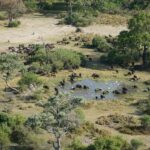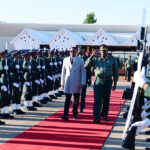With the recent tragedy of the Matsha School Gaborone United financer Mr Zakhem has agreed that the club pledge a donation to the foundation that was recently opened in favour of the students involved in the accident. Therefore instead of offering food packages to those at the hospital Zac Construction and Gaborone United Sporting Club will hand a cheque (amount undisclosed) at Marina Hospital this Friday.
Since the establishment of the Vision 2016 pillars, Gaborone United Sporting Club has been fully committed to participate actively and play a significant role in seeing most of them possible. Three pillars were aligned to instantly; A United and Proud Nation: A Prosperous, Productive and Innovative Nation: A Compassionate, Just and Caring Nation. The Club thus saw sport which is their core business as a vehicle to drive this desire forward.
This move is done as part of its social responsibility. Well done Moya Goleele, you are not dubbed ‘The Mone Machine’ for nothing. We wish Matsha students a speedy recovery.










